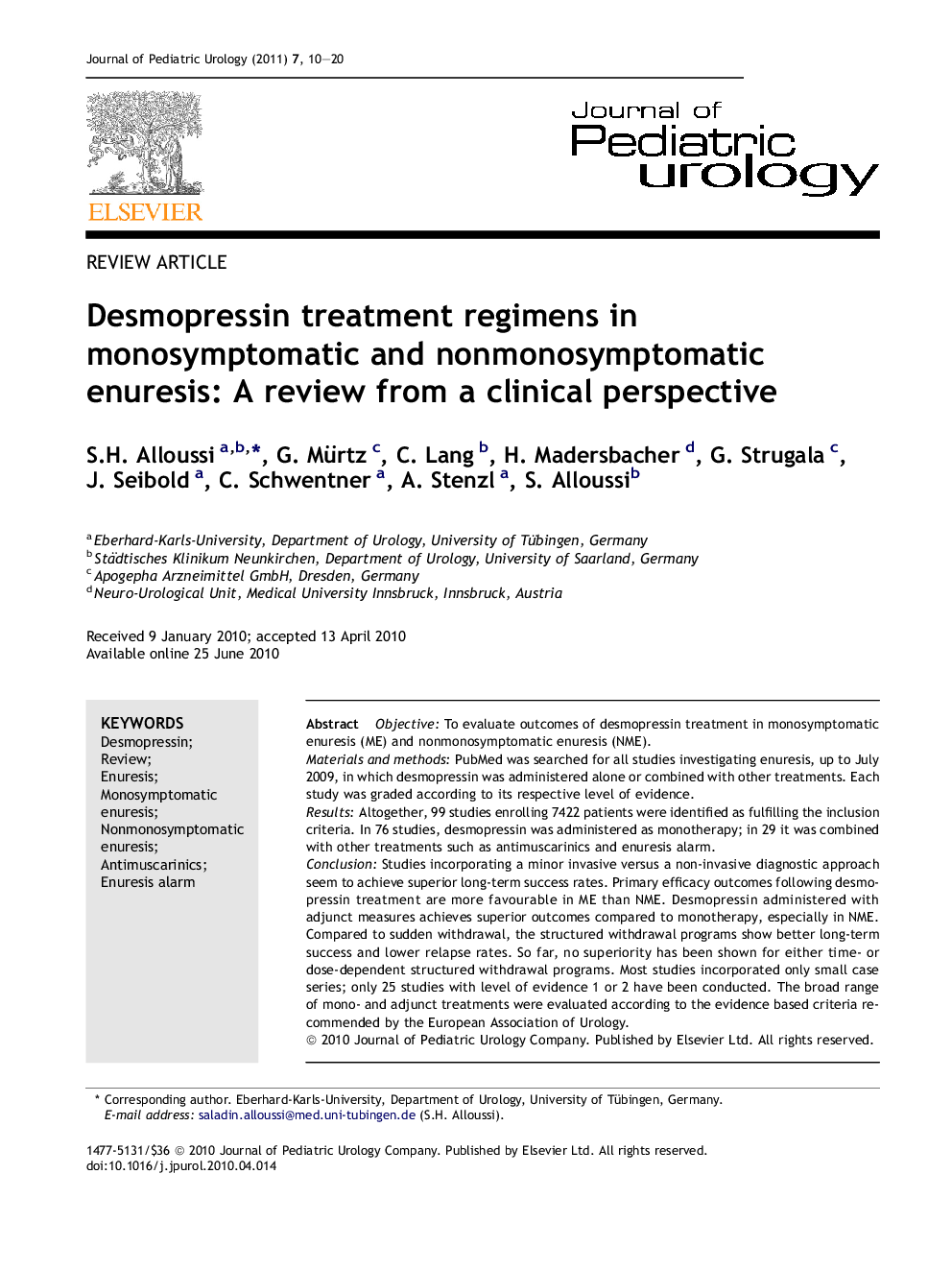| Article ID | Journal | Published Year | Pages | File Type |
|---|---|---|---|---|
| 4162918 | Journal of Pediatric Urology | 2011 | 11 Pages |
ObjectiveTo evaluate outcomes of desmopressin treatment in monosymptomatic enuresis (ME) and nonmonosymptomatic enuresis (NME).Materials and methodsPubMed was searched for all studies investigating enuresis, up to July 2009, in which desmopressin was administered alone or combined with other treatments. Each study was graded according to its respective level of evidence.ResultsAltogether, 99 studies enrolling 7422 patients were identified as fulfilling the inclusion criteria. In 76 studies, desmopressin was administered as monotherapy; in 29 it was combined with other treatments such as antimuscarinics and enuresis alarm.ConclusionStudies incorporating a minor invasive versus a non-invasive diagnostic approach seem to achieve superior long-term success rates. Primary efficacy outcomes following desmopressin treatment are more favourable in ME than NME. Desmopressin administered with adjunct measures achieves superior outcomes compared to monotherapy, especially in NME. Compared to sudden withdrawal, the structured withdrawal programs show better long-term success and lower relapse rates. So far, no superiority has been shown for either time- or dose-dependent structured withdrawal programs. Most studies incorporated only small case series; only 25 studies with level of evidence 1 or 2 have been conducted. The broad range of mono- and adjunct treatments were evaluated according to the evidence based criteria recommended by the European Association of Urology.
